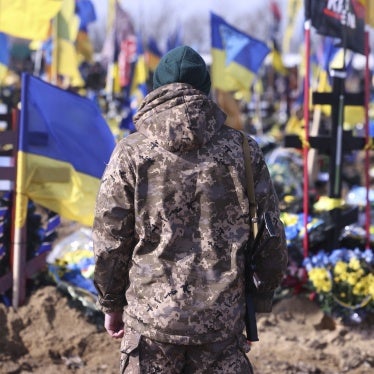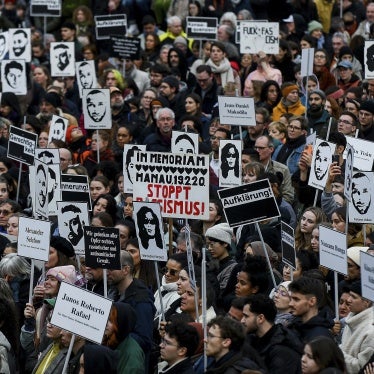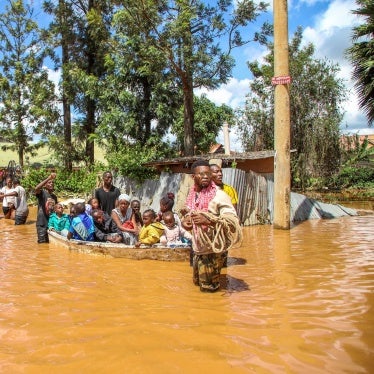To:
Josep Borrell Fontelles, High Representative of the European Union for Foreign Affairs and Security Policy and Vice President of the European Commission
Foreign Ministers of the EU member states
RE: EU position on the Gaza hostilities and the situation in Israel and Palestine
Dear High Representative / Vice-President Borrell,
Dear Foreign Ministers of the EU member states,
We are writing ahead of the 13 November Foreign Affairs Council discussions on the situation in Israel and Palestine to raise a series of concerns on ongoing developments and on the EU positioning so far, and to share a list of recommendations for the EU and its member states moving forward.
The man-made humanitarian catastrophe in Gaza continues to rapidly deteriorate. The October 7 Hamas and Islamic Jihad attacks against Israeli and other civilians and their taking of scores of civilian hostages, which constitute war crimes, shocked the world with their brutality. The Israeli government’s disproportionate response – it has cut water, food, fuel and electricity to the more than 2.2 million people living in Gaza – constitutes an act of collective punishment, which is also a war crime. Human Rights Watch has documented how the Israeli authorities’ severe curtailing of humanitarian aid to Gaza have caused enormous suffering to the civilian population, harming especially women, children and people with disabilities.
Unprecedentedly heavy airstrikes by Israeli forces, which have hit schools (according to the UN), hospitals, and homes in Gaza, have turned entire blocks and large parts of neighborhoods to rubble. More than 10,000 people, including 4,008 children, have been killed since October 7, according to the Gaza Ministry for Health.
Hamas and other Palestinian armed groups have deliberately killed civilians, taken civilians hostage and threatened to broadcast their execution, and launched thousands of rockets at Israeli communities. According to the Israeli government, the October 7 Hamas-led attack in Israel resulted in the killing of approximately 1,400 people, hundreds of them civilians.
Impunity for past abuses has clearly contributed to today’s violations, which show no signs of abating. Despite this, most EU governments have been silent about the critical role of the International Criminal Court (ICC), the only international entity already mandated with delivering impartial justice.
Furthermore, media reports in Israel allege that the Israeli government acknowledged consideration of a proposal to transfer Gaza’s population to Egypt. About 70% of Gaza residents are refugees, many of whom are or are descendants of those who fled or were expelled from their homes in 1948 in what is now Israel; the Israeli government has blocked them from exercising their right to return, as set out under international law. The Israeli government’s evacuation order to the civilian population in northern Gaza to move to southern Gaza could amount to the war crime of forced displacement, as would expelling the Gaza population further down into Egypt, especially if they are denied their right to return at the end of the hostilities. Israel’s and Egypt’s international partners should avoid complicity in any unlawful actions.
The Israeli authorities’ response to the October 7 attacks has been accompanied by dehumanizing and inflammatory statements by Israeli political leaders, which suggest disregard for international humanitarian law (IHL). On 9 October, the Israeli defense minister, Yoav Gallant, said, “We are fighting human animals, and we act accordingly.” The Israeli energy minister Israel Katz, who ordered to cut electricity, fuel and water to all Gaza residents, said that “there is no reason” to provide humanitarian aid to the Palestinian people until Israeli forces “eliminate” Hamas. Even Israel’s President Issac Herzog, while saying that Israel respects international humanitarian law, said “it’s an entire nation out there that is responsible”.
Meanwhile, Palestinians in the West Bank are facing unprecedented repression. As of November 1, Israeli authorities held more than 2,000 Palestinians in administrative detention without trial or charge, the highest number in more than 30 years, according to the Israeli human rights group HaMoked. As of November 6, Israeli forces have already killed 394 Palestinians in the West Bank, more than in any other year since 2005, when the UN began systematically recording fatalities. Coercive and restrictive Israeli government policies and settler violence has also led to the displacement of more than 900 Palestinians from more than 15 communities since October 7, according to UN OCHA.
The EU’s response to the ongoing hostilities, as well as its position on the situation in Israel and Palestine before the October 7 attacks, have exposed double standards that have raised questions about the EU’s – or at least some of its members’ – commitment to international law.
Before the attacks, no EU member state had openly recognized – let alone proposed measures to address – Israeli officials’ commission of the crimes against humanity of apartheid and persecution against Palestinians, both codified in the Rome Statute of the International Criminal Court. The EU has provided much-needed humanitarian and development aid to the Palestinians, and focused its efforts on attempts to revive the prospects for a negotiated two states solution. But the EU took no action as subsequent Israeli governments persisted in their systematic discrimination and oppression of Palestinians and ignored repeated EU calls to halt settlement expansion, home demolitions, land confiscations and forced transfers of Palestinians. Long-standing sharp divisions among EU member states, as latest exposed in their mixed voting record on the October 27 UN General Assembly (UNGA) resolution on the ongoing hostilities, have made it virtually impossible for the EU to secure the unanimity necessary to adopt any concrete measure to address the Israeli government’s systematic abuses.
After the October 7 attacks, initial statements by high-level EU representatives, such as Commission President von der Leyen and Parliament President Metsola, expressed categorial support for the Israeli government to act militarily following the Hamas-led October 7 attacks, but failed to mention the need to comply with international humanitarian law (IHL). Similar statements persisted even after the Israeli government had already cut basic supplies to Palestinians and began dropping explosive weapons with wide-area effects into densely populated Gaza, creating foreseeable risks of significant harm to civilians. Several calls were also initially made to cut EU aid to Palestinians, under the assumption that some of it could reach Hamas. Efforts by High Representative Borrell, Council President Michel and others helped rectify some of these missteps, reaching EU consensus on basic calls on the Israeli government to respect international humanitarian law and to allow for humanitarian aid to reach those in need. But the EU is yet to acknowledge and condemn collective punishment by Israeli forces in Gaza, a war crime, and to call for accountability.
The EU’s silence stands in sharp contrast with its remarkable efforts to address serious crimes in Ukraine, and with the EU’s broader commitment and efforts to advance respect for and equal application of international law, including human rights law and IHL.
That commitment and those efforts seem to vanish for many EU member states when it comes to Israel and Palestine, as also shown by their mixed voting records on the December 2022 UNGA resolution requesting an advisory opinion to the International Court of Justice on the legal consequences of Israel’s occupation.
The EU’s silence comes not only to the detriment of millions of Palestinian civilians in Gaza and in the West Bank who already have faced systematic oppression for decades, but also to the credibility of the EU vis a vis non-western states (the so-called “global south”) as a principled foreign policy actor. It also undermines the EU’s commendable efforts to lead on numerous human rights and accountability-related initiatives at the UN and other international fora. Governments that have repeatedly showed disregard for international law and attempted to weaken the international human rights system, such as China and Russia, risk taking advantage of this display of double standards.
As EU foreign ministers continue to discuss the rapidly evolving situation in Israel and Palestine and regional dynamics, Human Rights Watch recommends that the EU and individual EU member states consider the following steps:
- Reaffirm condemnation of Hamas’s and other Palestinian armed groups’ heinous attacks of October 7, which constitute war crimes, and reiterate calls on Hamas and other armed groups to stop their indiscriminate firing of rockets towards Israeli communities and immediately and unconditionally release all civilian hostages;
- Continue to urge governments with influence on Hamas, including Qatar, Egypt, and Turkey, to use their leverage to press for hostages to be released as soon as possible and treated humanely until their release;
- Condemn Israeli authorities’ cutting of food, water, fuel and electricity to the population of Gaza as collective punishment, which is a war crime, and urge Israeli authorities to remove all undue restrictions that continue to prevent urgently-needed humanitarian aid from reaching civilians in Gaza;
- Call on the Israeli government to refrain from unlawful, indiscriminate and disproportionate use of explosive weapons with wide-area effects and white phosphorous in densely populated areas;
- Call for accountability for serious crimes committed by all parties, voice unequivocal support for the International Criminal Court in delivering impartial justice, including in its investigation of the situation of Palestine, and commit to ensuring the ICC has the political, diplomatic and financial support it needs to carry out its global mandate;
- Oppose unequivocally any plan to deport Gaza residents to Egypt, highlight the risk of forced displacement and emphasize Palestinian refugees’ right to return;
- Suspend military assistance and arms sales to the Israeli government so long as its forces commit widespread, serious abuses amounting to war crimes against Palestinian civilians with impunity, and urge other governments to cease providing arms to Palestinian armed groups, including Hamas and Islamic Jihad, so long as they systematically commit attacks amounting to war crimes against Israeli civilians;
- Recognize the need to address the root causes of the violence in Israel and Palestine, including impunity for unlawful attacks by Israeli forces and Palestinian armed groups, the Israeli government’s crimes against humanity of apartheid and persecution against the Palestinians, and the continued expansion of Israel’s settlements into Palestinian land, which is illegal under international law.
Formulating calls to respect IHL is important, but when it is being violated on a daily basis, costing the lives and the suffering of so many, it is not enough. Lack of unanimity among EU member states cannot be an excuse for inaction. Every EU government that is committed to upholding human rights and international law has a responsibility to speak up and adopt the measures listed above in its own capacity, while urging others to follow suit.
We hope you will uphold these recommendations and stand ready to discuss these issues with you at your earliest opportunity.
Yours sincerely,
Tirana Hassan
Executive Director
Human Rights Watch







